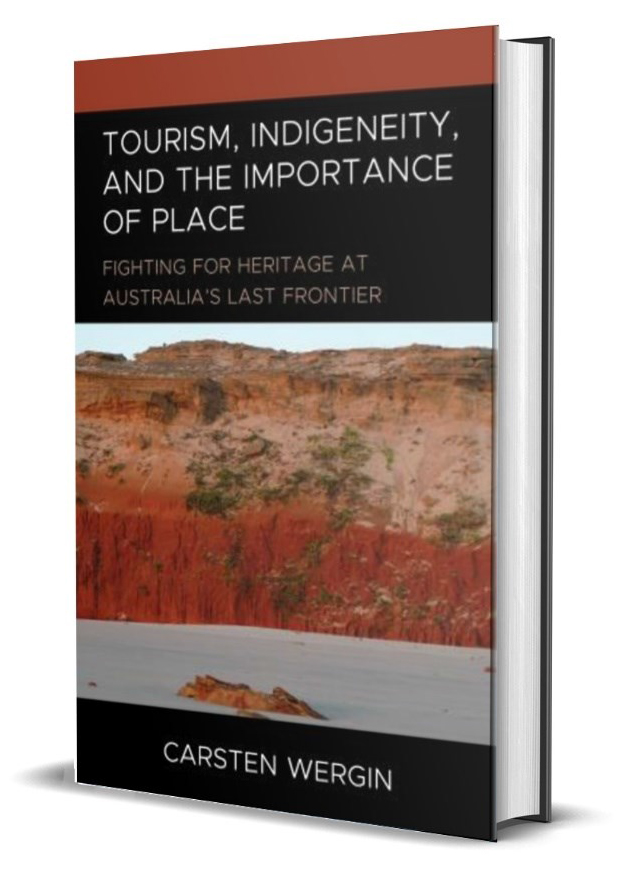Carsten Wergin: Tourism, Indigeneity, and the Importance of Place. Fighting for Heritage at Australia’s Last Frontier
Lexington Books 2023
The book presents a long-term ethnographic study of arguably the largest environmental protest action in Australian history: The Walmadany / James Price Point conflict. Carsten Wergin offers a detailed account of how local community members, Indigenous custodians, heritage preservationists, environmentalists, and tourists collaboratively joined forces to successfully oppose the construction of a $45 billion (AUD) liquefied natural gas facility on sacred Indigenous land. Tourism, Indigeneity and the Importance of Place is a close reading of Aboriginal ›country‹ and its living heritage. It follows the Lurujarri Heritage Trail, an Indigenous Tourism experience that would have been destroyed by the LNG project, to offer a timely discussion of the sociocultural and political relevance of heritage and tourism for ecological preservation and the wider decolonial project in Australia and beyond.
Hardback: ISBN 978-1-7936-4825-9 – December 2023
Regular price: $105.00, £81.00 After discount: $73.50, £56.70
ebook: ISBN 978-1-7936-4826-6 – December 2023
Regular price: $45.00, £35.00 After discount: $31.50, £24.50
Download the flyer. Easiest way to order worldwide – via the website: https://rowman.com/Lexington
»Carsten Wergin’s book, rooted in extensive research, emphasizes the central role of Indigeneity and the recognition of Aboriginal heritage values by both Indigenous and non-Indigenous protestors in resource debates. Wergin offers a groundbreaking contribution to the field, paving the way for a vision of a decolonized Australia in a post-resources boom era.«
– Melissa Baird, Michigan Technological University
»This innovative ethnography from North-West Australia benefits from the frictions among mining, tourism and ancient Indigenous cultures. With his lively prose, Carsten Wergin clearly demonstrates what is at stake, as he offers an innovative conceptual framework for contemporary anthropology.«
– Stephen Muecke, University of New South Wales
